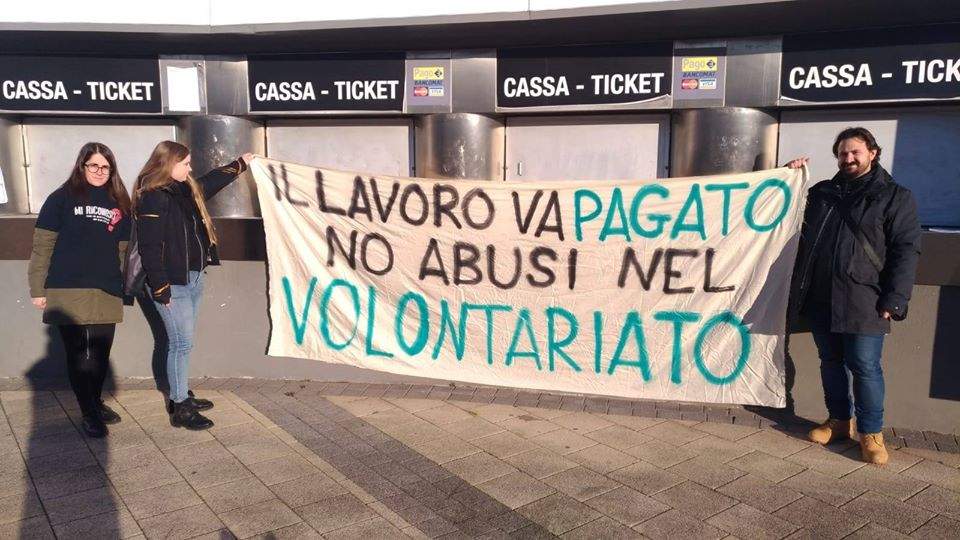Celebrations for the inauguration of Padua European Volunteer Capital were held this morning at the Padua Fairgrounds, which were also attended by President of the Republic Sergio Mattarella. “Volunteering,” the president said on the occasion, “is an indispensable energy of society. A heritage generated by the community, which reverberates on the quality of our lives, starting with those in need, or struggling to overcome obstacles that stand in the way of exercising their rights.”
An indispensable energy, yes, but when it does not become a substitute for paid work: for years, in the cultural heritage sector, the abuses of volunteerism, in this sense, have contributed to damaging the cultural professions. This is what the activists of Mi Riconosci? I am a cultural heritage professional, a collective that has long been active in defending the rights of cultural workers. Some activists showed up at the Padua Fair with a banner (where it read “Work must be paid / No abuses in volunteering”) and informational flyers, some of which were scattered at strategic points of the fair.
The activists recounted that they were stopped by the police, who forced the removal of the banner and flyers scattered around the fair: after which, the members of the collective present were identified. The intent was to reach the hall where Mattarella would speak in order to display the banner, an unsuccessful goal. The activists therefore limited themselves to distributing leaflets to the audience present. “We hoped to be able to raise a serious issue in the midst of overly uncritical celebrations,” they said, “but we failed. We knew it would be difficult; we will continue to fight to end the use of volunteering as a substitute for work.”
Mi Riconosci lets it be known that it is not opposed, of course, to volunteering that contributes to the collective welfare, to volunteering that intervenes in emergency situations, and in general to volunteering that does not create conflicts between volunteers and professionals, or that does not guarantee private profits where the public could intervene, especially if volunteering becomes a means of procuring fotza lavoro at no cost. “The system,” the activists also explained in their flyer, “is widespread and capillary: hundreds and hundreds of museums and libraries, in the Veneto and in Italy, manage to keep open only thanks to the free labor of thousands of people framed as ’volunteers.’ Replacing a worker with a volunteer is legal, thanks to bad laws. Will Padua want to address this dramatic problem later this year?” Moreover, this is a problem that also closely affects the Quirinale, as we explained yesterday in an article about volunteer guides in the Palace.
What would be urgently needed, the collective explains, “is a law to regulate volunteerism, preventing abuses, preventing the use of workers employed for free, and finally bringing volunteerism back to its proper sphere: that of selfless help to contribute to the social and cultural growth of the community.”
 |
| Padua, heritage activists display banner against volunteer abuse: blocked and identified |
Warning: the translation into English of the original Italian article was created using automatic tools. We undertake to review all articles, but we do not guarantee the total absence of inaccuracies in the translation due to the program. You can find the original by clicking on the ITA button. If you find any mistake,please contact us.